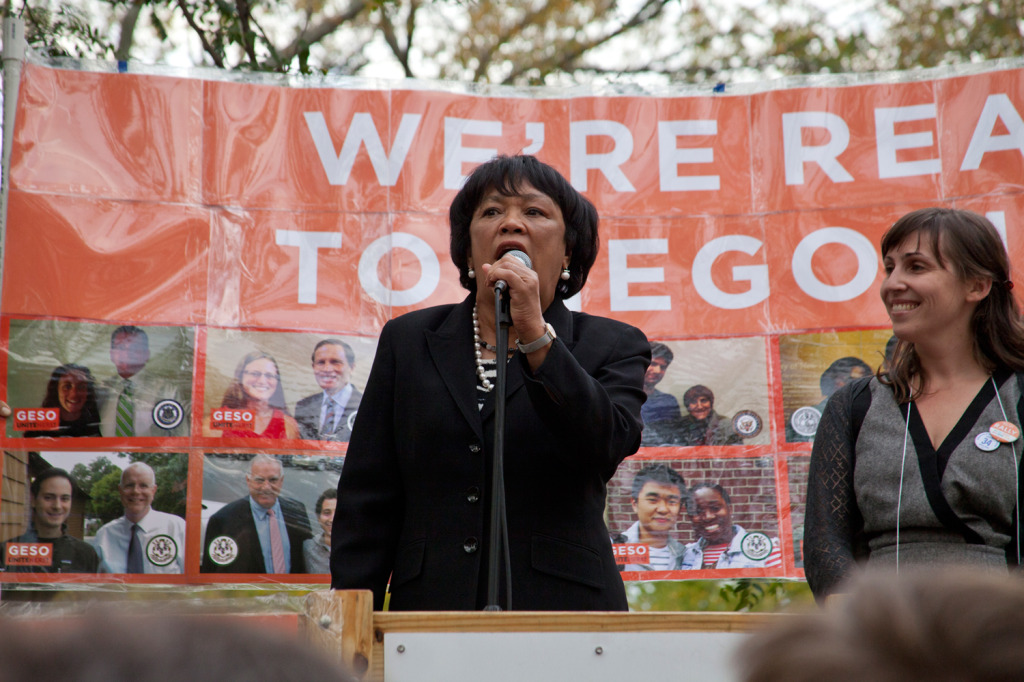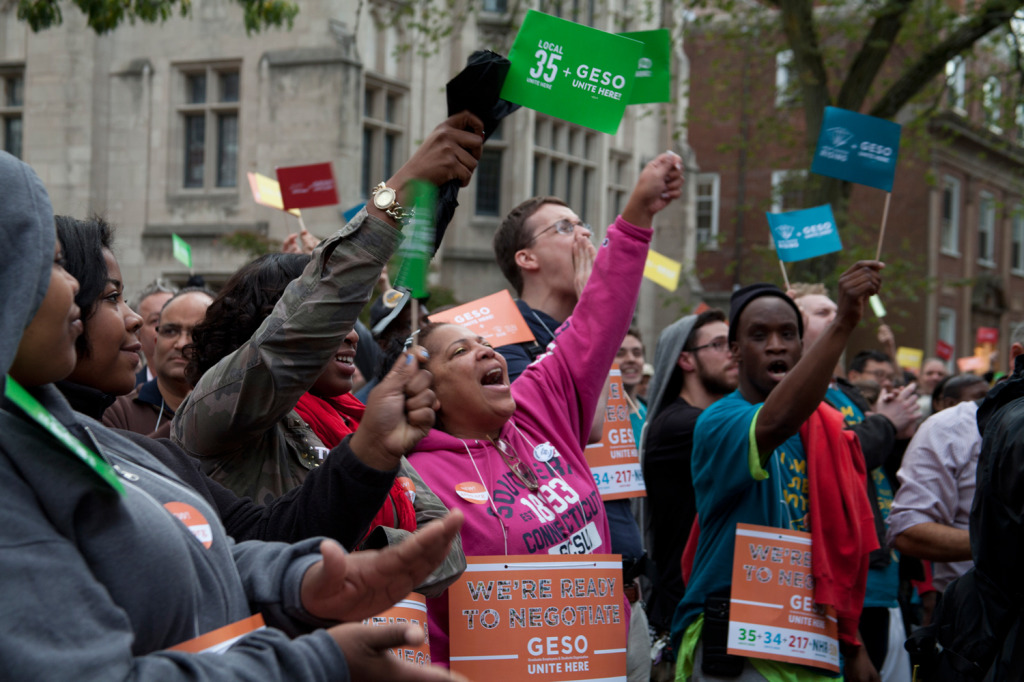The cheers of around 1,000 supporters of the Graduate Employee and Students Organization could be heard from blocks away as they marched towards Woodbridge Hall on Tuesday evening. Their destination: Woodbridge Hall, where they delivered a photo petition demanding recognition as a student union. But since Tuesday, administrators within Woodbridge Hall have remained silent on the matter.
With GESO student leaders, presidents of Locals 34 and 35 and prominent state and local politicians — including Gov. Dannel Malloy, Congresswoman Rosa DeLauro and Mayor Toni Harp — in tow, the rally appeared to show substantial support for graduate students’ right to collective bargaining. GESO leaders cited employment shortages, lack of research funds and unfair treatment as reasons for their need to form a union.
Nearly one week later, however, University administrators seem to still be unswayed from their longstanding opposition to graduate student unionization.
According to University spokesman Tom Conroy, Yale has no plans to recognize GESO in the near future, nor has the University had any contact with GESO representatives since Tuesday.
“The University has never believed that it would be in the best interest of the University or the students themselves to have a union and change the relationships of the Yale faculty to these graduate students,” Conroy said.
Not only does the University disapprove of the formation of a union of graduate students, but it also affirms that graduate students receive adequate support from the graduate schools. Before the rally, Conroy told the News that the Graduate School works to improve the academic, social and living experiences of graduate students along with the Graduate Student Assembly, an elected body of graduate students representing all departments.
Graduate School Dean Lynn Cooley echoed this sentiment, saying that rather than being classified as employees, graduate students instead are just that — students. Cooley said that graduate students’ primary purpose at Yale is to learn how to be effective teachers.
GESO representatives did not respond to requests for comment since Thursday.
On Tuesday, GESO Chair Aaron Greenberg GRD ’18 said that since the organization’s last rally in April — at which GESO leaders delivered a petition demanding the University recognize the results of an election to decide on the union question — both New York University and the University of Connecticut have moved forward in negotiating their first contracts with their own graduate student unions. Greenberg said that these developments reignited GESO’s determination to secure the University’s recognition.
However, Conroy noted that NYU is the only one of Yale’s private peer institutions to recognize a student union.
Graduate student employees at private colleges and universities are overseen by the National Labor Relations Board, whose rulings regarding student unions have shifted in recent years. Despite years of precedent rejecting graduate student unions like GESO, a 2000 ruling by the NLRB allowed graduate teachers at NYU to unionize and negotiate their first contract later that year.
But in 2004 the decision was reversed, preventing a graduate student union at Brown University from being recognized.
All of this follows decades of tension between the University and GESO.
However, rallies similar to those from last week and the spring are less contentious than past GESO actions. In 2005, some 250 teaching assistants picketed on Wall, High, York and Prospect Streets after presenting then-University President Richard Levin with an ultimatum demanding the group’s recognition. The University maintained its stance against unionization.
In 2003, graduate students voted down a proposal to recognize GESO as their union. The election, which was announced just days before it was to be held, was said to be poorly organized and alienated many critics of GESO’s agenda.
Despite years of repeated rejections, and no indication that the University will change course on the matter — GESO leaders suggest that they are undeterred.
The Graduate School of Arts and Sciences enrolls approximately 2,800 students.









